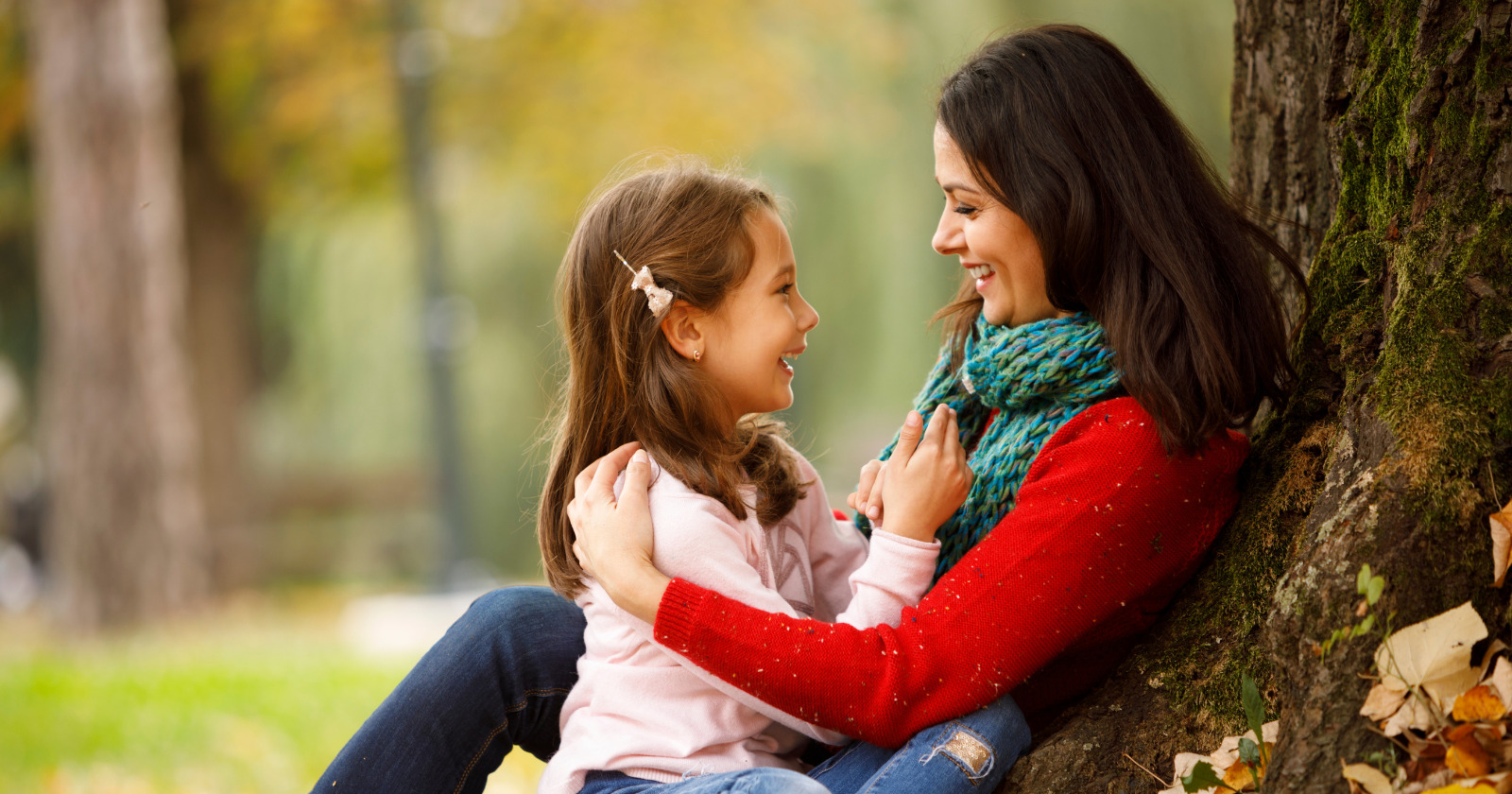As children, we all interpret love in different ways. Some of us may remember the warm embrace of our parents, others may recall the countless sacrifices they made to make us happy.
However, it’s not always the grand gestures that signal affection; sometimes it’s the subtle actions, the everyday behaviors that embed themselves into our memories.
According to psychologists, certain experiences in our childhood can indicate we were more loved than most.
This article will delve into these often-overlooked signs of deep parental love.
Get ready to embark on a nostalgic journey that might just make you appreciate your past in a whole new light.
1) You were allowed to express emotions
Childhood is a time of emotional development and learning how to navigate feelings is a critical part of this growth. If you were given the space to express your emotions, no matter how big or small, this signifies that you were more loved than most.
Children who are encouraged to verbalize their feelings are being shown a form of deep care. In these environments, emotions are not dismissed or stifled. They are acknowledged and validated.
This kind of interaction teaches a child that their feelings matter, fostering self-esteem and emotional intelligence. It also helps them develop healthy coping mechanisms for dealing with negative emotions in adulthood.
Allowing a child to express emotions isn’t simply indulging every tantrum or outburst. It involves showing empathy, teaching emotional regulation, and reassuring them that having feelings— even the difficult ones— is perfectly okay.
2) You were encouraged to be curious
Remember a childhood filled with questions, exploration, and a constant thirst for understanding? This reflects a time when you were deeply loved.
Parents who encourage their children’s curiosity are providing more than just answers to incessant questions.
They are fueling a sense of wonder and a love for learning that can serve them well into adulthood. They are affirming their child’s interests and showing them that their thoughts and inquiries have value.
I distinctly recall my own parents nurturing this sense of curiosity in me. There was never a silly question or an idea too far-fetched. They would actively engage with me, sparking conversations that would expand my horizons and stimulate my imagination.
This sort of positive reinforcement instills a confidence in children to explore the unknown and embrace the world with an open mind. As Albert Einstein famously said, “I have no special talent. I am only passionately curious.”
Recognizing this trait early on and nurturing it is indeed a profound act of love.
3) You experienced the freedom of unstructured play
The joy of childhood lies in the simplicity of unstructured play—those moments when imagination became a playground, allowing freedom to explore, create, and learn at your own pace. Experiencing this kind of play signifies a deep level of love and support.
Unstructured play offers more than just fun; it cultivates essential life skills. It fosters creativity, problem-solving abilities, and social skills, teaching children to negotiate, cooperate, and navigate their world.
I delve deeper into the value of freedom in childhood in one of my videos, where I share personal freedom hacks that have significantly improved my life. I believe the foundation of these hacks lies in the unstructured play of childhood.
To learn more about embracing freedom in all aspects of life, I encourage you to watch this video:
If this resonates with you and you’d like to continue exploring a life filled with more purpose and freedom, feel free to join over 30,000 others who have subscribed to my YouTube channel. You can do so by clicking here.
4) You were taught the value of empathy
Empathy serves as a powerful tool, and learning its value in childhood reveals profound love and support. It involves not only understanding another’s feelings but also recognizing each individual’s worth and treating them with dignity and respect.
Meryl Streep captures this sentiment perfectly, stating, “The greatest gift of human beings is that we have the power of empathy.”
Learning empathy means parents or caregivers took the time to explain others’ perspectives and feelings. It also involves demonstrating kindness and understanding through their actions.
This process isn’t always comfortable, as it requires acknowledging pain, injustice, and inequality. It includes challenging conversations about fairness, compassion, and respect.
Yet, within this raw honesty lies the beauty of empathy. It fosters a sense of shared humanity and interconnectedness, underpinning the belief that every individual possesses inherent worth and deserves respect and dignity.
5) You were allowed to make mistakes
One of the less obvious but deeply impactful expressions of love in childhood is the freedom to make mistakes. This freedom is born out of an understanding that mistakes are not failures, but opportunities to learn and grow.
Parents and caregivers who allow their children to make mistakes are sending a powerful message: “I trust in your ability to learn from this. I believe in your capacity to adapt and become stronger.”
Children who have the freedom to make mistakes develop into adults unafraid of failure.
They perceive challenges as opportunities for growth and learning, rather than threats to their self-esteem. By embracing imperfection, they understand that each mistake serves as a vital step toward improvement.
6) You were given responsibilities

While it may seem contradictory, assigning responsibilities to a child is a profound expression of love. It signifies trust and confidence in their abilities, and is an essential part of fostering self-reliance and personal empowerment.
Being given age-appropriate responsibilities as a child went beyond teaching chores or maintaining a tidy room.
This approach instilled values such as accountability, reliability, and integrity while fostering a sense of personal agency and understanding that one can make positive contributions to their environment.
Responsibilities present children with opportunities to face challenges, develop problem-solving skills, and experience the satisfaction of accomplishing tasks independently. These experiences build character and resilience, equipping them for the complexities of adult life.
Through these responsibilities, caregivers offer more than just busywork or practical skills. They strengthen a child’s sense of self-worth and capability, shaping them into individuals who embrace challenges, take responsibility for their actions, and contribute positively to the world.
7) You were encouraged to pursue your passions
Parents and caregivers who encourage their children to follow their passions, no matter how unconventional, are showing a deep form of love. By supporting your interests and hobbies, they are telling you that your joy and personal fulfillment matter.
Encouraging a child’s passions involves more than keeping them busy or entertained. It emphasizes acknowledging their individuality, respecting their choices, and fostering their self-confidence.
This approach demonstrates that they are valued for who they are, not solely for their achievements.
Supporting a child’s passions often requires patience and sacrifice. It may involve driving them to extra-curricular activities, investing in equipment or resources, or simply listening attentively as they excitedly share their latest discovery or achievement.
But the message it sends to the child is powerful – “Your happiness matters. Your interests matter. You matter.”
This kind of love goes beyond providing basic needs and enters the realm of nurturing the child’s spirit, ultimately empowering them to lead a life aligned with their values and passions.
8) You were exposured to healthy conflict
Conflicts are a natural part of human interactions, and how they’re handled can leave lasting impressions, especially during childhood. Exposure to healthy conflict resolution serves as a profoundly impactful form of love.
Parents or caregivers who engage in healthy conflict demonstrate respect, empathy, and cooperation, even during disagreements.
They express their feelings honestly, listen to others’ perspectives, and work toward resolutions that honor everyone’s needs.
Children who witness healthy conflict learn valuable lessons in communication, compromise, and emotional regulation. They understand that disagreements don’t have to lead to hostility or estrangement but can serve as opportunities for growth and deeper understanding.
This experience shapes individuals capable of navigating disagreements constructively while maintaining strong, respectful relationships despite inevitable differences.
The ripple effect of love
Love goes beyond feelings; it embodies action, choice, and a powerful force that shapes our lives. Childhood experiences of love and care leave lasting imprints on our hearts and minds.
These moments influence our self-image, relationships, resilience, and capacity to love. Experiencing love as a child is a unique blessing, fostering empathy and connection in our interactions.
By nurturing curiosity, listening to friends, and validating emotions, we contribute to a world where everyone feels valued.
Reflect on how your experiences have shaped you and the actions you can take to promote empathy and unconditional love in your relationships.









